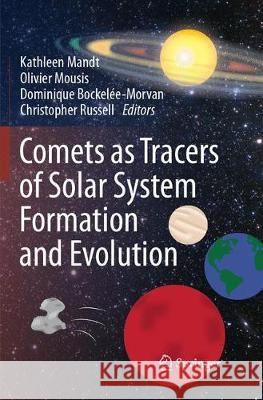Comets as Tracers of Solar System Formation and Evolution » książka
topmenu
Comets as Tracers of Solar System Formation and Evolution
ISBN-13: 9789402414899 / Angielski / Miękka / 2018 / 342 str.
Comets as Tracers of Solar System Formation and Evolution
ISBN-13: 9789402414899 / Angielski / Miękka / 2018 / 342 str.
cena 391,77 zł
(netto: 373,11 VAT: 5%)
Najniższa cena z 30 dni: 385,52 zł
(netto: 373,11 VAT: 5%)
Najniższa cena z 30 dni: 385,52 zł
Termin realizacji zamówienia:
ok. 20 dni roboczych.
ok. 20 dni roboczych.
Darmowa dostawa!
Kategorie BISAC:
Wydawca:
Springer
Język:
Angielski
ISBN-13:
9789402414899
Rok wydania:
2018
Wydanie:
Softcover Repri
Ilość stron:
342
Oprawa:
Miękka
Wolumenów:
01











